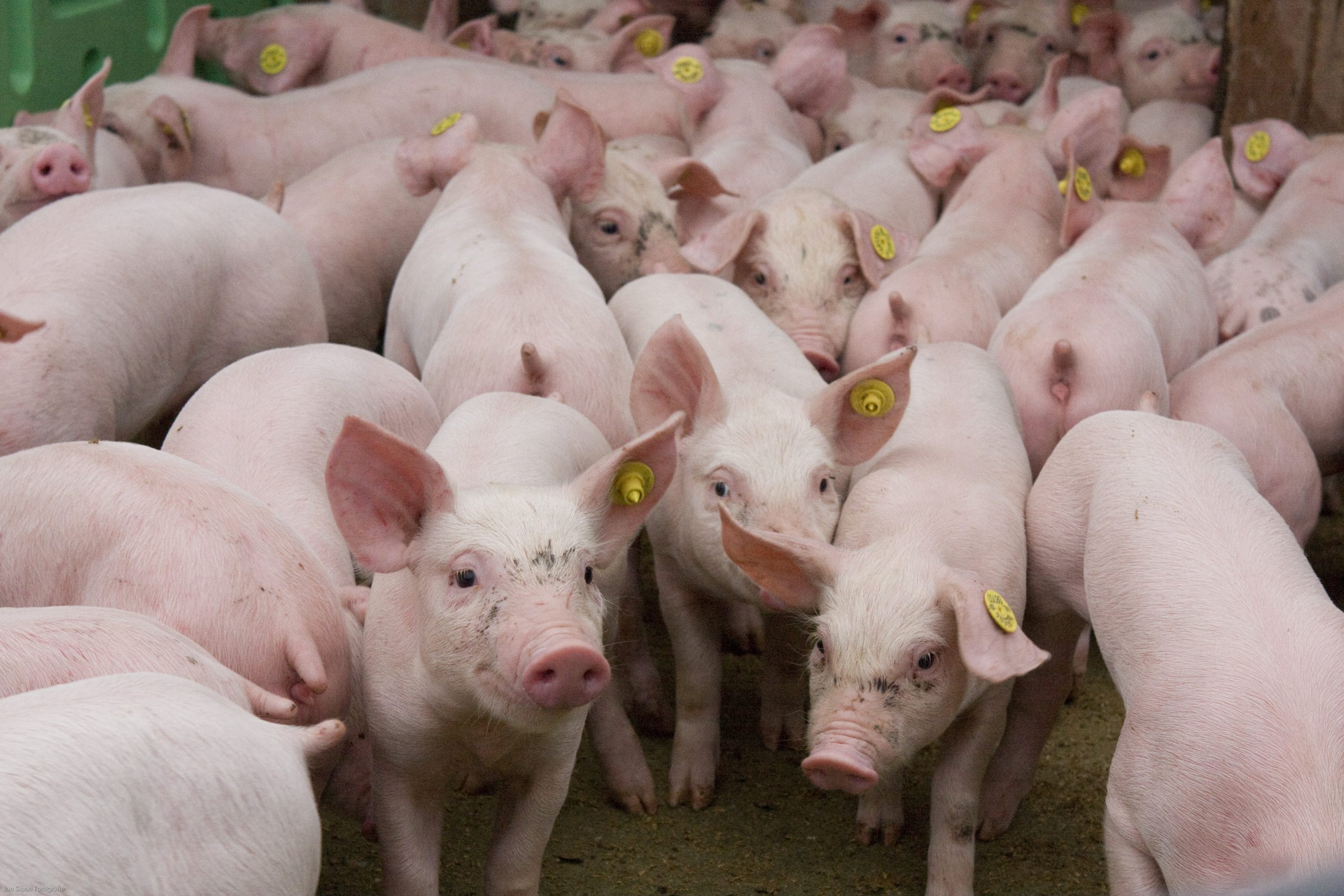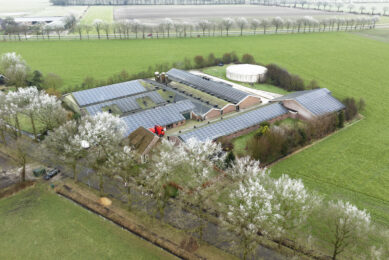Feed additive combo for better digestibility

Research has shown that a combination of a protease and multi-strain Bacillus probiotic improves energy and protein digestibility in grower-finisher pigs, leading to increased growth and feed efficiency, as well as reduced ammonia emissions.
As the single largest cost in pig production, feed is a common target when managing costs. However, low-cost ingredients often have low energy density and high fibre, 2 characteristics that make nutrients less accessible and also negatively impact the hind gut by hindering gut structure development and decreasing absorptive function. Given pigs’ limited ability to digest fibre, these high-fibre diets pose significant nutritional and health challenges. For example, corn distiller’s dried grains and solubles (DDGS) has 21% of protein bound to fibre. A pig’s endogenous digestive capacity in the small intestine is insufficient to break down and liberate all of the nutrients from this fibre-protein complex. Microbial fermentation of protein occurs when these fibre-bound nutrients reach the hind gut, causing higher concentrations of ammonia and biogenic amines. Ammonia levels impact health and performance indifferent ways. It can affect gut structure development, which can decrease the gut’s digestive and absorptive function. Plus, high levels of ammonia in manure can increase the incidence of bacterial growth and respiratory infection. Levels as low as 10 ppm have been shown to decrease efficiency and profitability.
Solutions to improve digestibility
Due to pigs’ limited ability to digest fibre, the use of feed additives to improve digestibility and growth performance has garnered much attention. In recent years, strains of Bacillus have been used as a probiotic and have exhibited multiple benefits, including improvements in growth performance, nutrient digestibility, blood characteristics, and decreased faecal gas emissions. Benefits from Bacillus are thought to relate to inhibition of non-beneficial bacteria and immunomodulatory effects, together with the support of beneficial host microbiota. The Bacillus strains have even shown the capability of adjusting the type and quantity of enzymes they produce. However, the benefits of some probiotics can be inconsistent. The impact of exogenous protease. which is known to increase the hydrolysis of proteins in the small intestine, liberating peptides and amino acids for absorption and utilisation has also been highly studied. In some circumstances protease has been shown to improve protein and energy digestibility, but results can be inconsistent.
In the search for a reason for inconsistent performance of feed additives, some have suggested that this is due to variability of the pig diet in which they are included. In other words, changing the substrate available to the enzyme or probiotic could affect the additive efficacy.
Figure 1 – The effect of the protease + DFM combination (Syncra® SWI) on protein digestibility was greater than the additive effects of the protease and DFM alone.

Enzymes and probiotics combined
It has been suggested that combination feed additives, with their greater range of action on complex and variable feed ingredients, could improve efficacy and consistency compared to individual additives. The synergistic effect of the combination may be derived from a complementary action of in situ produced enzymes from the probiotic, together with the exogenous protease that degrades the fibre-protein matrix, releasing nutrients that remain unavailable when either additive is used alone. This mode of action allows Bacillus-derived enzymes to bypass the challenge of delivering reliable and stable enzymes to the gastrointestinal tract for nutrient release. After an initial screening of various enzymes, probiotics, and combinations of the 2, the combination of a protease and multi-strain Bacillus showed the greatest improvements in pig growth performance, feed conversion efficiency, and energy and protein digestibility. Recent research showed that the synergistic effect of a protease and an enzyme-producing multi-strain Bacillus probiotic* on energy and protein digestibility (Figures 1 and 2) delivered consistent improvements of 8% on average daily gain (ADG) and gain to feed ratio (G:F). Research also showed that the protease/multi-strain Bacillus probiotic product combination, increased protein absorption in the upper gastrointestinal tract, reducing protein fermentation in the lower gastrointestinal tract and therefore decreasing ammonia emissions by 14%. The use of the protease/multi-strain Bacillus probiotic product combination also showed the potential to positively shift the microbiota. One study demonstrated the ability of the multi-strain Bacillus, alone or in combination with protease, to significantly increase highly beneficial Lactobacillus populations, indicating a beneficial shift in the microbiota.
Figure 2 – The effect of the protease + DFM combination (Syncra® SWI) on energy digestibility was greater than the additive effects of the protease and DFM alone.

Sustainable profitability
While proteases and probiotics added individually and applied in specific conditions, can offer benefits such as improvements in ADG, the protease/probiotic product combination showed a synergistic effect, maximising energy and amino acid digestibility for improved ADG and G:F in all growth phases and overall. This increase in protein digestibility enables pigs to extract more nutrients from the same volume of feed, allowing sustainable profitability with reduced feed cost. In addition, it can also reduce ammonia emissions and strengthen the gut barrier, supporting growth and health.
*Syncra® SWI











